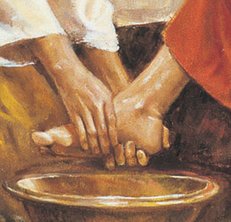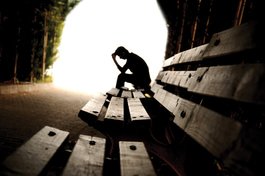
What’s wrong with enlightenment values and what are they? I’m glad to see from surfing the web that I’m not the only one to wonder about this and that there’s some debate about them. Like everything else people with different philosophical viewpoints see enlightenment values differently and use them to bolster their own position. But we in the West live in a post-enlightenment world and the desire for freedom, autonomy, rationality (which some would accept as resulting from the Enlightenment) is part of our thinking. We’ve moved on but cannot dismiss the culture from which we’ve come and in which we live. I can’t guess what the presenter meant by suggesting the traditional categories of exclusivism, inclusivism and pluralism are reflective of the enlightenment – perhaps they’re too rational and analytical, not faith based enough. They may be 20th cy and there might be need for a new approach and a new theology but I think these categories still have a part to play in facing Christians with assumptions and beliefs about their own faith as well as that of others. They are like a mirror which can reveal positions and stand-points that often influence us unconsciously and I think show a development in Christianity’s relationship with other faiths.
In the past Christianity lived and flourished in a world that was mostly Christian. Its contact with other faiths was minimal and, where there was contact, others were seen as the focus for missionary endeavour. A belief in the uniqueness of Jesus Christ as the one path to salvation made the need for conversion imperative and compulsory. It was an approach which came out of a well –meaning desire for the salvation of those who would be lost if they did not accept Christianity. It ignored other religions, denigrated them as being in error and having no salvific potential, often having no knowledge of the other faiths. It’s an approach which I can’t sustain because I’ve come to recognise the wisdom in other faiths, I’m helped by many of their teachings but above all I’ve met people who are obviously close to God and living a good and holy life. And this has come to them through the faithful practice of their own faith – how could God deny them salvation?
The inclusivist approach takes this holiness seriously but tries to reconcile it with belief in the uniqueness of Jesus so that the grace and holiness which comes to those of other faiths through their own beliefs and practice is grace made available to all through the life, death and resurrection of Jesus. Karl Rahner coined the term anonymous Christian to describe this reality. Now we find that a difficult term because it seems to denigrate others – who wants to be called an anonymous anything? I’m inclined to think it gets a hard press. Rahner was trying hard to keep the integrity of his own Christian faith while being open to the obvious goodness of others. Muslims believe that we are all born muslim so, in a way, if we live in submission to God we could be seen as anonymous Muslims. Some Buddhists believe we all have an innate Buddha-nature so we could be seen to be anonymous Buddhists. They too are trying to be true to the integrity of their own faith while being inclusive of others. Where Christianity seems to overstep the mark is suggesting that without Christianity and Jesus these religions are ineffective for salvation. It denies them their autonomy or salvific potential. More than any other religion Christianity seems to have a compulsion to analyse and rationalise, to explain the workings of its faith rather than just live it –other faiths seem happier to do this.
The third category, pluralism, is I think misunderstood. It’s often dismissed as outdated. It’s assumed to mean that all religions are equal, are the same, one is as good as another etc. This is not what I’ve been taught. Rather I understand a pluralist approach to mean that all religions offer the possibility of salvation to their followers. It’s not a judgement on the religions. Why? – because God is generous and merciful, because all are made in the image and likeness of God, because God calls all of us into wholeness and well-being and God can only do that in the concrete reality of our lives. But this only happens if people have found what I would call the pearl of great price at the heart of their religion. There’s good religion and bad religion. Often religious systems, including Christianity, have obscured the kernel of faith. Sometimes people have to work quite hard to find that salvific core. But it’s there, I believe, in all faiths and is one of the reasons why mystics so often find a unity in religions that theologians with their analysing and critical approach do not. We do need on-going theologies of interfaith relations but we shouldn’t be too quick to cast aside categories that hold a mirror up to who we think we are and what we believe about God and others.





 RSS Feed
RSS Feed
